In the highly-powered landscape of modern business, efficiency and streamlined operations are crucial for success. This is where ERP comes into play. But what is enterprise resource planning( ERP)? ERP stands for Enterprise Resource Planning. This comprehensive system integrates various business processes, ensuring seamless operations and real-time information flow across an organization. Let’s delve deeper into the world of ERP, exploring what ERP software is and its significance, particularly in supply chain management.
What Does ERP Stand For?
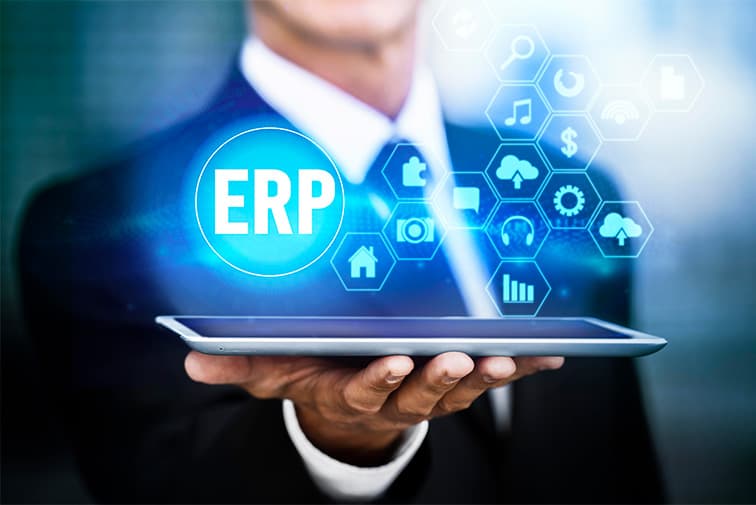
As mentioned, ERP stands for Enterprise Resource Planning. This terminology highlights the core purpose of ERP software, which is to plan and manage resources across the entire enterprise. From financial management to supply chain operations, ERP ensures that all resources are utilized efficiently and effectively. This comprehensive approach to resource planning and management is what makes ERP software indispensable for modern businesses.
What is
ERP?
ERP, or Enterprise Resource Planning, is a type of software used by organizations to manage and integrate the crucial parts of their businesses. An ERP software system can synthesis planning, purchasing inventory, sales, marketing, finance, human resources, and more.What ERP does stand for is centralize the data from various departments, creating a single source of truth that enhances decision-making and operational efficiency.
What is ERP Software?
ERP software is a suite of integrated applications that an organization can use to collect and interpret data from various business activities. Essentially, Enterprise Resource Planning software acts as the backbone of a company’s IT infrastructure, supporting all operations & processes. This software encompasses a variety of functions, including planning, and marketing, to automate business processes.
What is ERP in SCM?
In the context of supply chain management, ERP plays a pivotal role. What is ERP in supply chain management, you ask? Enterprise Resource Planning software integrates all aspects of the supply chain, from procurement to production and distribution. It ensures that supply chain operations are streamlined, costs are minimized, and productivity is maximized. By providing real-time data and insights, ERP systems enable companies to make informed decisions and manage inventory.
The Evolution and Importance of ERP
To fully appreciate what ERP software is, it’s important to understand its evolution. ERP systems originated from Material Requirements Planning (MRP) systems in the 1960s and 1970s, which focused primarily on manufacturing processes. Over time, these systems evolved to incorporate a broader range of business functions, becoming what we now know as Enterprise Resource Planning . This evolution underscores the importance of ERP software in adapting to the growing complexities of business operations.
Key Features of Enterprise Resource Planning Software
Understanding what ERP software is involves recognizing its key features. These typically include:
-
Integrated Modules
Enterprise Resource Planning software includes various modules for different business functions, such as finance, HR, sales, and supply chain management.
-
Real-time Data
One of the standout features of ERP is its ability to provide real-time data and analytics, facilitating timely and accurate decision-making.
-
Scalability
ERP systems are scalable, meaning they can grow with the business, adding new modules or functionalities as needed.
-
Automation
By automating routine tasks, ERP software reduces manual workload, minimizes errors, and enhances efficiency.
-
Customization
ERP solutions can be customized to meet the specific needs of an organization, ensuring a better fit and more effective implementation.
ERP in Supply Chain Management: A Closer Look
To further understand what Enterprise Resource Planning is in supply chain management, let’s explore how ERP software enhances various supply chain processes:
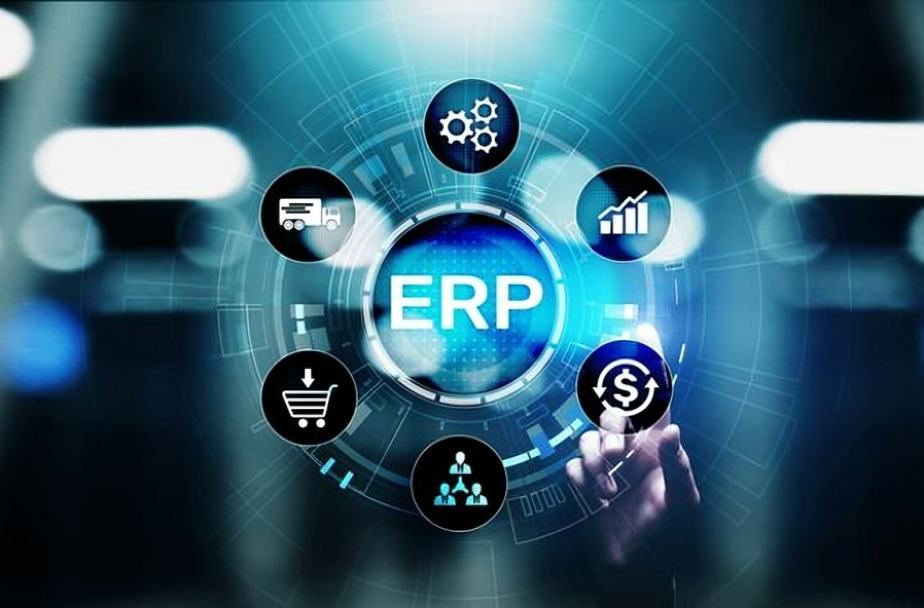
- Procurement: ERP systems streamline procurement by automating purchase orders, managing supplier relationships, and tracking inventory levels.
- Production: ERP software optimizes production scheduling, resource allocation, and workflow management, ensuring efficient manufacturing processes.
- Inventory Management: Real-time inventory tracking helps prevent stockouts and overstock situations, maintaining optimal inventory levels.
- Logistics: ERP facilitates efficient logistics and distribution by managing warehouse operations, transportation, and order fulfillment.
- Customer Relationship Management: By integrating CRM functionalities, ERP ensures that customer needs are met promptly and effectively, enhancing customer satisfaction.
Benefits of Implementing Enterprise Resource Planning Software
Implementing Enterprise Resource Planning software brings numerous benefits, which further emphasize its value. These include:
Improved Efficiency
By integrating and automating business processes, ERP software significantly improves operational efficiency.
Enhanced Data Accuracy
ERP systems reduce data redundancy and errors, providing accurate and consistent data across the organization.
Better Decision-Making
With real-time data and analytics, managers can make informed decisions that drive business growth and profitability.
Cost Savings
ERP helps in reducing operational costs by streamlining processes, improving resource utilization, and minimizing waste.
Challenges in Implementing Enterprise Resource Planning Software
Despite its benefits, implementing Enterprise Resource Planning software can pose challenges. Understanding these challenges is crucial to successfully leveraging what ERP software has to offer. Common challenges include:
High Costs
The initial investment for ERP software can be substantial, including costs for software, hardware, and training.
Complex Implementation
ERP implementation can be complex and time-consuming, requiring careful planning and execution.
Change Management
Organizations may face resistance from employees who are accustomed to legacy systems and processes.
Customization Needs
Customizing ERP software to fit specific business needs can be challenging and may require additional resources.
Future Trends in Enterprise Resource Planning
As technology evolves, so does ERP software. Understanding what ERP will look like in the future involves exploring emerging trends such as:
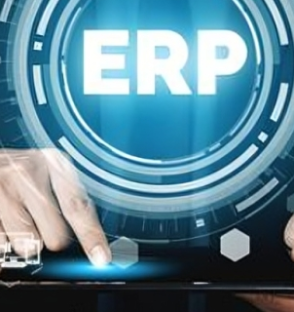
Cloud-Based ERP
Increasingly, organizations are adopting cloud-based ERP solutions for their scalability, flexibility, and lower upfront costs.

AI and Machine Learning
Integrating AI and machine learning capabilities into ERP systems enhances predictive analytics, automates routine tasks, and improves decision-making.
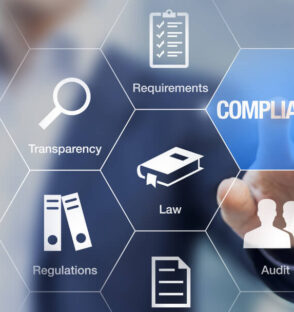
IoT Integration
The Internet of Things (IoT) enables real-time tracking and management of assets, further optimizing supply chain operations.

Enhanced User Experience
Modern ERP solutions focus on user-friendly interfaces and improved user experiences to increase adoption and productivity.
Conclusion
In conclusion, understanding what is Enterprise Resource Planning is and the pivotal role of ERP software in modern business operations is essential. ERP stands for Enterprise Resource Planning, a system designed to integrate and manage an organization’s core processes. Particularly in supply chain management, ERP software ensures seamless operations, efficient resource utilization, and enhanced decision-making. Despite implementation challenges, the benefits of ERP software are substantial, making it a critical investment for businesses aiming for growth and efficiency in an increasingly competitive landscape.
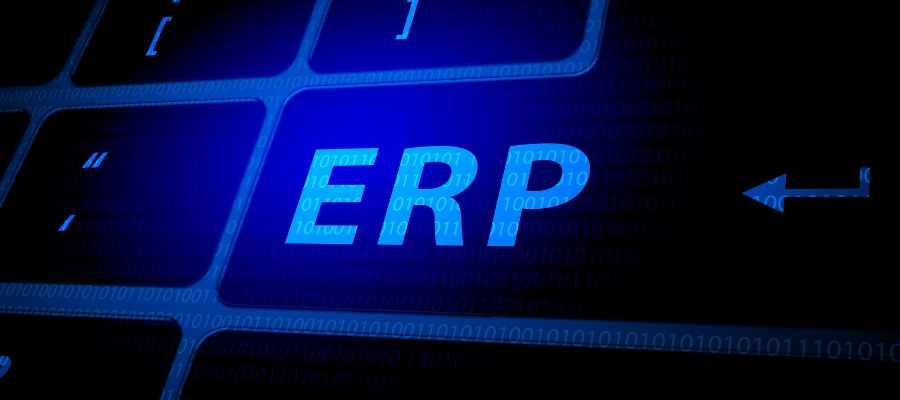
Unlocking The Power Of ERP: A Key To Business Transformation
July 3, 2024[…] Demystifying ERP: What is it and How Does it Work? […]